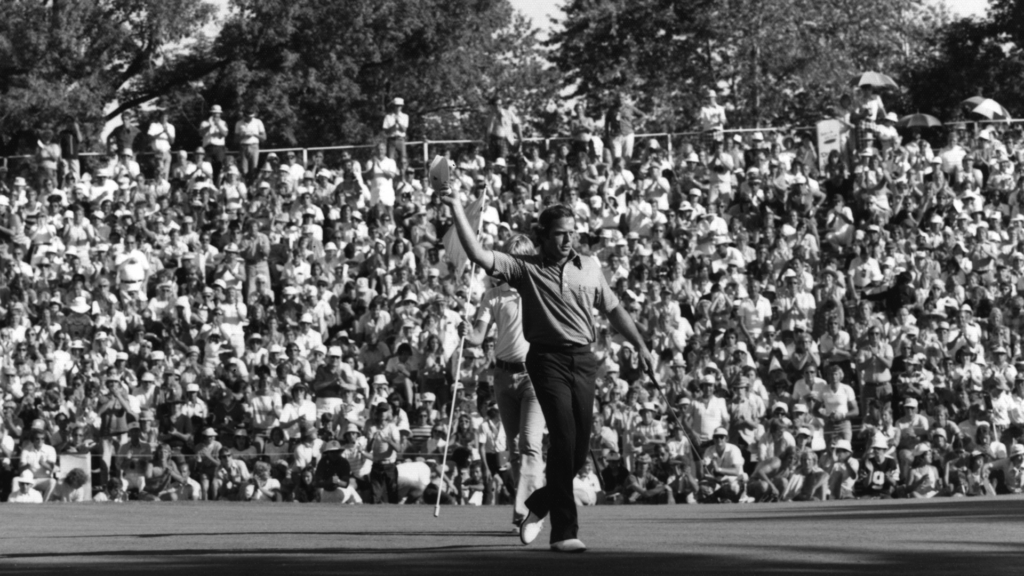When the Mississaugua Golf and Country Club welcomes the best golfers in the world for the CPKC Women’s Open in August – including the game’s No.1-ranked player in Nelly Korda plus past champion and CPKC ambassador Brooke Henderson amongst so many others – it will join a special group of golf clubs in this country that have hosted all of the CPKC Women’s Open, RBC Canadian Open, Canadian Women’s Amateur, and Canadian Men’s Amateur.
But the club, which will, later this summer, become just the eighth course in the country to host the fabulous foursome of events, has had its fair share of magical moments already.
Established in the early 1900s, the course was revised in 1919 by Donald Ross before Stanley Thompson made some more changes in 1927 before hosting the Canadian Open in 1931.
From then until now – nearly 100 years – the Mississaugua Golf and Country Club has seen lots of history. And as it looks ahead to the next century, the club and its members are extremely excited about what’s to come.
Before the first-ever CPKC Women’s Open at Mississaugua here’s a little walk down memory lane at the iconic layout.
1931 – RBC Canadian Open
How about this start as a Canadian Open host venue? Walter Hagen, one of the game’s biggest – and first – global superstars – won in dramatic fashion. Hagen topped Percy Alliss in a playoff. It marked his second win of the season and 38th on the PGA Tour.
1938 – RBC Canadian Open
Another Canadian Open and another playoff – this time won by another giant of the game. Sam Snead took down Harry Cooper (denying him from winning the Canadian Open in back-to-back years).
It was the first of four Canadian Open triumphs for Snead.
1942 – RBC Canadian Open
Two-time major champion Craig Wood (he won both the Masters and the U.S. Open the year prior) won by four shots, finishing at 13-under 275 for the week. At the time, it was the lowest winning score in tournament history.
His 13-under effort would end up being the lowest-ever score at a Canadian Open at Mississaugua.
1951 – RBC Canadian Open
Australian Jim Ferrier became just the third golfer in tournament history to successfully defend his title at the Canadian Open, having won at Royal Montreal in 1950 after a tidy 17-under 271 total and a three-shot win. Ferrier came to Mississaugua and finished at 7 under and topped a pair of golfers by two shots.
Ferrier won 18 times on the PGA Tour including the PGA Championship.
1965 – RBC Canadian Open
The longest time had passed between Canadian Opens at Mississaugua and Gene Littler won – his first PGA Tour title in three years. But it was the man who finished runner up that made headlines as Jack Nicklaus lost by just one to Littler. It was Nicklaus’ first of a record seven runner-up finishes at the Canadian Open.
1974 – RBC Canadian Open
In the last Canadian Open hosted by Mississaugua, it was Bobby Nichols who captured the title after finishing runner up 13 years’ prior. Nichols won by four shots over a pair of golfers.
2006 – Canadian Men’s Amateur
A member of Team Canada at the time, young standout Richard Scott won his third Canadian Amateur title which cemented his status as one of the country’s most dominant amateur golfers. As a very special wink to the setting of his victory, Scott will be inducted into the Canadian Golf Hall of Fame later this summer at the club.
2016 – World Junior Girls Championship
Mississaugua welcomed 48 girls to its storied layout for the World Junior Girls Championship nine years ago including current top-ranked golfers on the LPGA Tour in Hae-Ran Ryu (South Korea’s top golfer), Maja Stark (winner of this year’s U.S. Women’s Open), Esther Henseleit (Olympic medalist), and winner Yuka Saso.
Saso, who was 15 at the time of her win at Mississaugua, would go on to win the 2021 U.S. Women’s pen just five years later. She has since added another U.S. Women’s Open title to her resume.
The team from the Philippines also won the team competition, of which Saso was a part.



